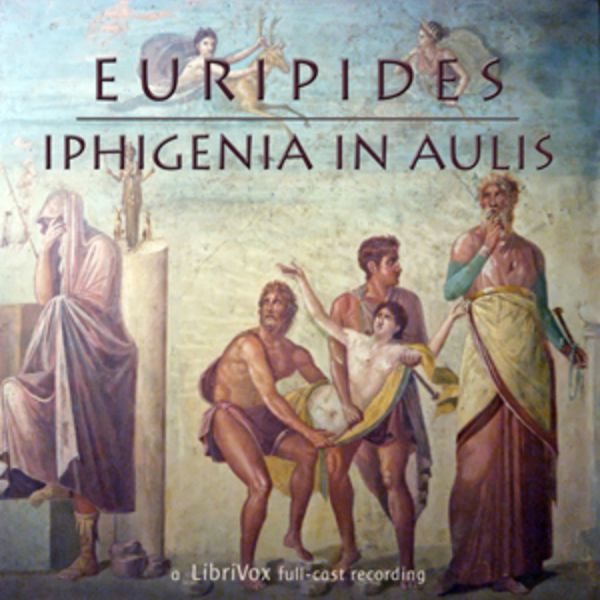The contemporary attitude towards antiquity is mixed. There are many who praise the ancient civilizations like that of the Greeks, Indians, Romans, and Egyptians for their philosophy and high-ideals. However, there is also no dearth of people who consider them primitive and feel that what we have achieved in the last few centuries completely overshadows our achievements of antiquity.
Nevertheless, the fact remains that we owe a lot of what we have achieved to the ancients. Mathematics and science wouldn’t be what they are without the contribution of geniuses like Euclid, Pythagoras, and Aryabhata. We owe a great deal of our philosophical knowledge to the likes of Plato and Aristotle. And the list goes on. Although many of these achievements lose their significance once science has refuted their claims. Still, plenty of them remain as they are and continue to influence us. Among these, the influence of ancient art, particularly their theater is especially significant.
Why read Ancient Plays?
When we talk about ancient plays i.e. the plays written during Pre-Shakespearean era, we are talking primarily about Greek Plays, Roman Plays and Sanskrit Plays. Many of the other ancient cultures had their theaters too, but either their art is lost or is no longer relevant. However, some of the plays belonging to the ancient Greek, Roman and Indian cultures are still relevant and not only these plays still have performances all over the world, they have numerous modern cinematic adaptations as well. And although the list of such plays is never-ending, we’ve made a list of 7 of the great plays from the antiquity that still continue to influence us.
7 – Great Plays of Ancient Theater
1. Oedipus Rex by Sophocles
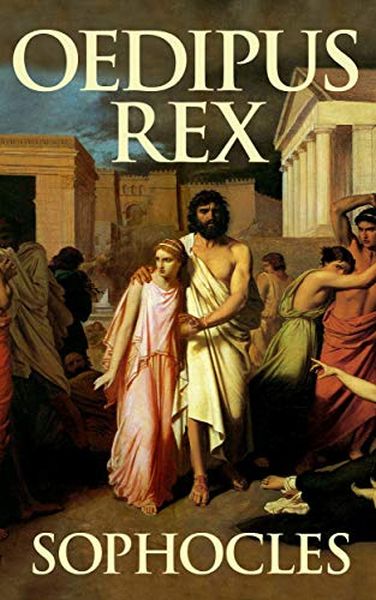 If you ask anyone about any ancient Greek play, and they happen to know about a certain play, this is most likely to be the one. We owe most of the popularity of this play to the Austrian psychologist Sigmund Freud. He went as far as naming his most popular concept (i.e. Oedipus Complex) after this play (don’t ask us what this concept is about), and that’s not all. Oedipus might also be one of the few ancient plays that had a deserving cinematic adaptation to its name. Oldboy (2003) by Park-Chan Wook, which is a loose modern adaptation of the play, is considered a cinematic masterpiece.
If you ask anyone about any ancient Greek play, and they happen to know about a certain play, this is most likely to be the one. We owe most of the popularity of this play to the Austrian psychologist Sigmund Freud. He went as far as naming his most popular concept (i.e. Oedipus Complex) after this play (don’t ask us what this concept is about), and that’s not all. Oedipus might also be one of the few ancient plays that had a deserving cinematic adaptation to its name. Oldboy (2003) by Park-Chan Wook, which is a loose modern adaptation of the play, is considered a cinematic masterpiece.
The play is about how Oedipus is cursed by the God Apollo that he would murder his father and marry his mother. In order to escape this prophecy, Oedipus runs away from his home and decides to never come back. But what follows is something totally unprecedented.
The main motif of this play (like many other ancient Greek plays) is how nothing can go against the will of Gods and how humans are helpless creatures who must suffer their fate. Moreover, it carries various other underlying motifs like pride, shame, and free-will etc. It was considered a masterpiece at the time it was written, and is still considered a masterpiece of Greek Tragedy, although the interpretations vary greatly.
2. Shakuntala by Kalidasa
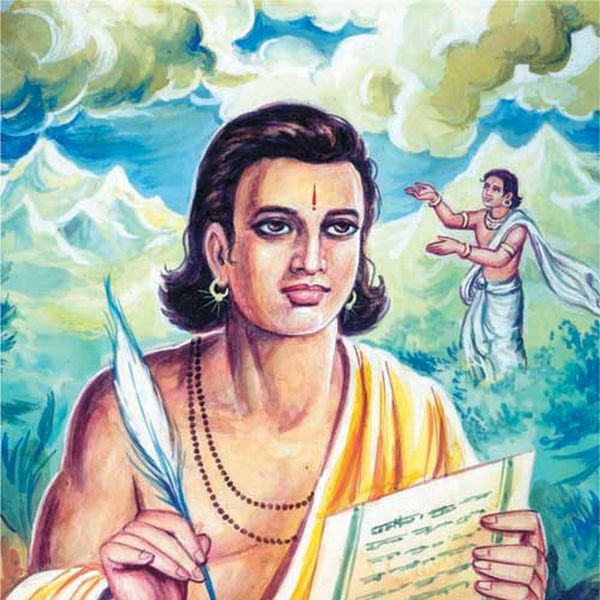 Image Source : s3.ap-south-1.amazonaws.com
Image Source : s3.ap-south-1.amazonaws.com
Kalidasa is often considered as the greatest Sanskrit poet of all time, and Shakuntala is hailed as his masterpiece. The play garnered such a wide fame that it was later translated into all the major Western Languages and also reached the German Poet Goethe, who greatly admired Kalidasa’s poetry. The verses from the play and particularly its dreamy female lead ‘Shakuntala’ also charmed the prolific Indian Painter Raj Ravi Verma who portrayed her in many of his famous paintings.
The story of this play is about a peerless and dreamy woman named Shakuntala who lives in wilderness. One day she comes across a King named Dushyanta who is travelling to the forest with his army. Both Dushyanta and Shakuntala immediately fall in love with each other and get married without any delay. But since Dushyanta has to go to his kingdom, he leaves, but with a promise that he’ll be back. He does come back, but due to the sage’s curse on Shakuntala, he fails to recognize Shakuntala. What follows is a beautiful narrative, which brings out Kalidasa’s singular poetic charm.
3. Iphigenia in Aulis by Euripides
This play is a must-read for anyone interested in Greek Mythology. To get a better hang of it, we advise you to read the two major Greek epics i.e. Iliad and Odyssey. These would also help in getting acquainted with the central characters of the story.
The plot of the play revolves around the war of Troy, where the warrior prince Agamemnon decides to sacrifice his daughter in order to appease the goddess Artemis, whom Agamemnon has offended. Agamemnon goes through many changes of mind, but ultimately decides to go through with the sacrifice when he realizes that he would lose everything in case he doesn’t go forward with the sacrifice. The picture becomes much more complicated when Agamemnon’s brother Menelaus and the great warrior Achilles also come into the picture.
The theme of the play, though based in antiquity, is surprisingly contemporary, as it dissolves the boundary between a war epic and a domestic tragedy. No wonder there have been plenty of adaptations of the play, the most recent being ‘The Killing of a Sacred Deer’ by auteur Yorgos Lanthimos, who is also a Greek.
4. Phaedra by Seneca
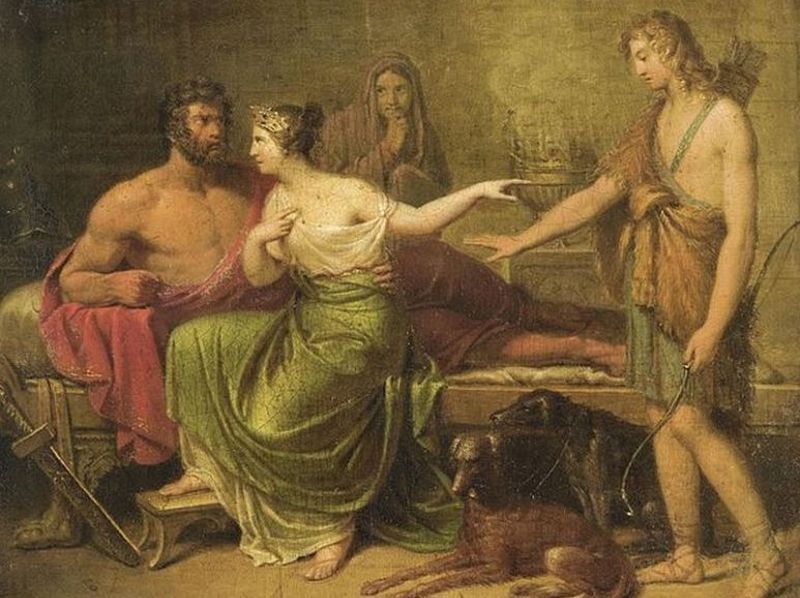 Image Source : ancient-literature.com
Image Source : ancient-literature.com
No one was ever more obsessed with ancient Greeks the way that Romans were. While the early Roman architects and artists found it hard to compete with the Greek ones, it wasn’t so with the playwrights. Ancient Rome had its fair share of playwrights and Seneca was certainly one of the best. He had the rare honor of telling a Greek mythological almost at par with the Greeks. Even now Phaedra by Seneca remains as one of the best sources for the myth.
The story of Phaedra is literally the same as same. It’s about Phaedra falling in love with her stepson Hippolytus who rejects all her advances. Phaedra, distraught by Hippolytus’ attitude decides to take revenge on him through her husband (and Hippolytus’s father) Theseus.
The plot of the play has almost become almost a cliché now, and when Seneca wrote it, there was already a popular play based on the myth Hippolytus by Euripides. However, Seneca differed substantially from the Euripides in the handling of the matter. The play by Seneca has Phaedra and not Hippolytus as the central character and it portrays Phaedra not as passive woman (like in the Greek Play) but as an aggressive and intelligent woman who is capable of standing up for her own desires.
5. The Little Clay Cart by Sudraka
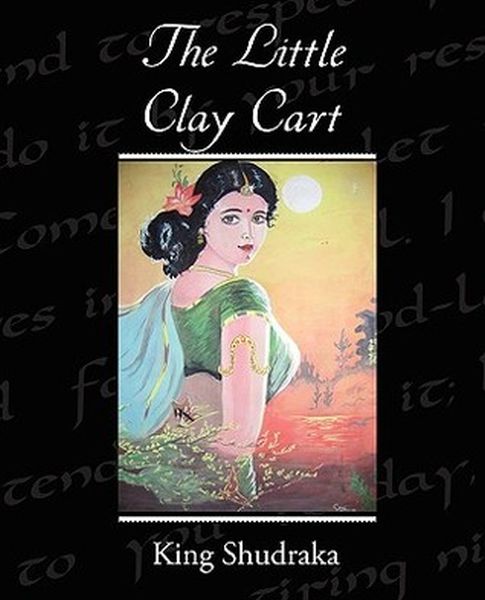 Image Source : i.gr-assets.com
Image Source : i.gr-assets.com
Mṛcchakatika or (as it is popular in the west) The Little Clay Cart is yet another Sanskrit play that enjoyed considerable crossover success. It is a significant departure from most of the previous Sanskrit plays as it doesn’t deal with something mythological and philosophical, but with domestic lives of the people. This makes the original play very special, as one can use it as a document to speculate about the lives of Indian people back in 5th Century AD.
The plot of this play is too detailed to describe. We can safely call it Ulysses of the 5th Century Ujjayini (Indian City). The main characters of the play are Carudatta a kind young man, and Vasantasena a rich courtesan. Apart from these two there are loads of other characters of a different social standing like thieves, gamblers, Buddhist monks, herdsmen and executioners etc. Though you’d find plenty of English translation of the play, reading it in the original is also totally worth it. It could be one of the reasons for you to learn Sanskrit. Either way, it is a must read for those having an archeologist like interest in ancient literature.
6. Oresteia by Aeschylus
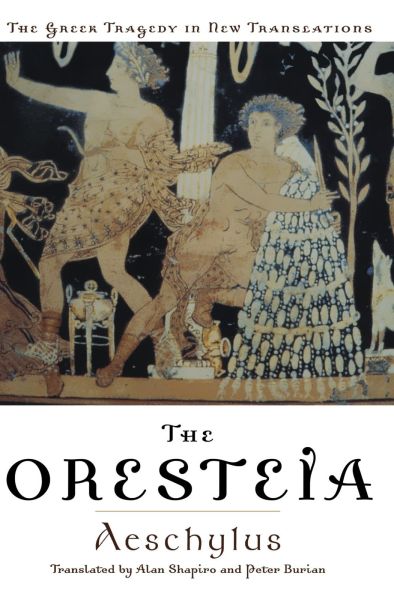 Image Source : images-na.ssl-images-amazon.com
Image Source : images-na.ssl-images-amazon.com
After Euripides and Sophocles, Aeschylus is the third most important figure in Greek theater, and the trilogy of plays called Oresteia shows why such is the case. Along with Iphigenia in Aulis by Euripides, Orestia completes the tragic story of Agamemnon’s family life. We won’t write anything about the plot here as we don’t want to come up with any spoilers, but in case if you have read the Greek epic Odyssey, you might already know about the plot. Anyway, even if you do know about it, that shouldn’t make it any the less interesting as it wasn’t without any reason that Aeschylus was called one of the masters of the Greek tragedy.
7. The Frogs by Aristophanes
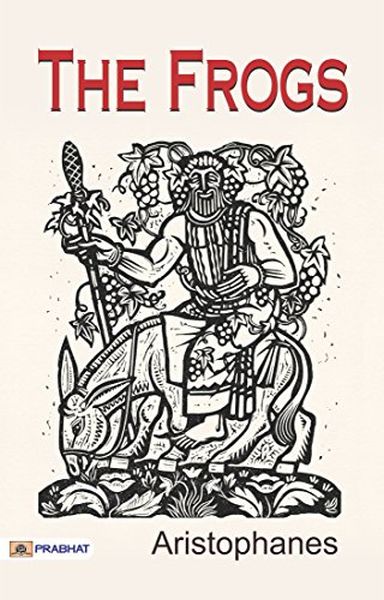 If you call reading Greek tragedies the main course, The Frogs should certainly be your dessert. Not only it is a lighthearted political parody (with an infamous frog chorus), in it you’d also find the other popular Greek playwrights like Euripides and Aeschylus as the main characters (not Sophocles as he was alive when the play was being written).
If you call reading Greek tragedies the main course, The Frogs should certainly be your dessert. Not only it is a lighthearted political parody (with an infamous frog chorus), in it you’d also find the other popular Greek playwrights like Euripides and Aeschylus as the main characters (not Sophocles as he was alive when the play was being written).
Unlike other Greek Playwrights, Aristophanes might be an acquired taste, and might require a bit of research on your end, but you can be assured that any effort that you put in towards understanding it won’t be fruitless.


